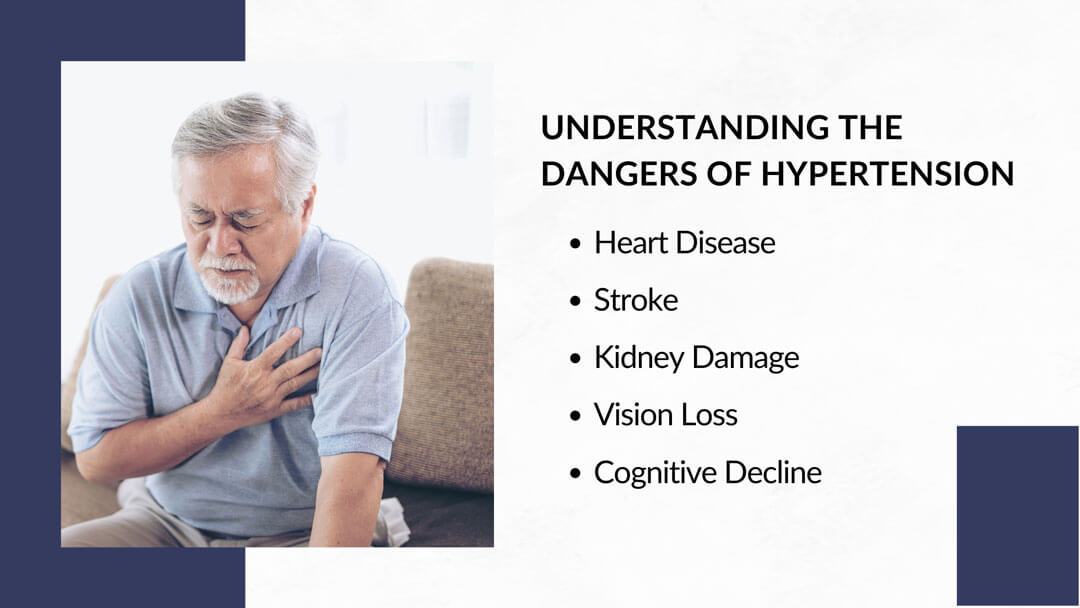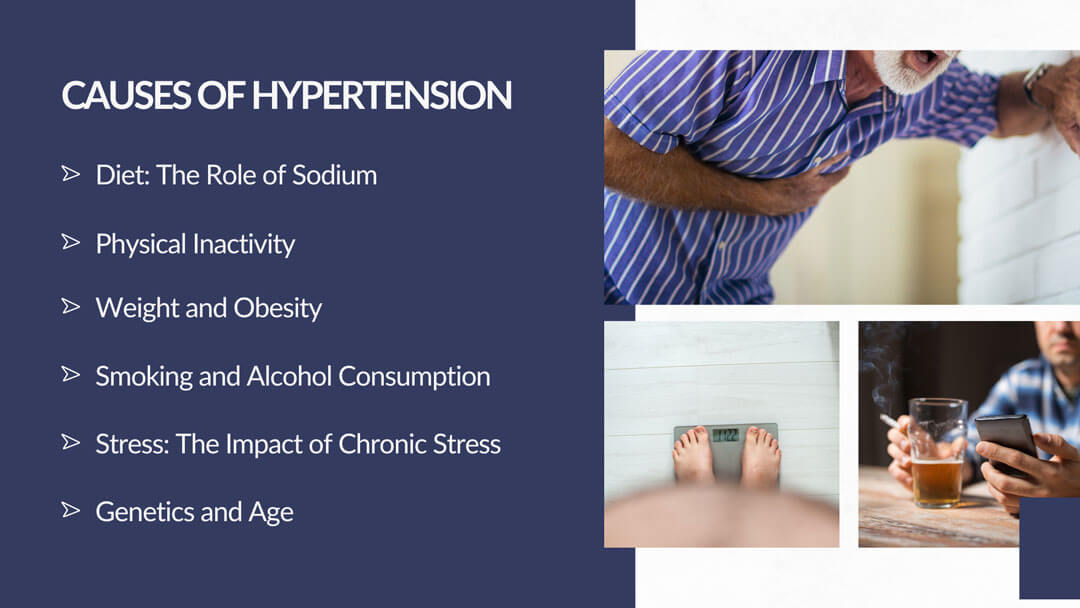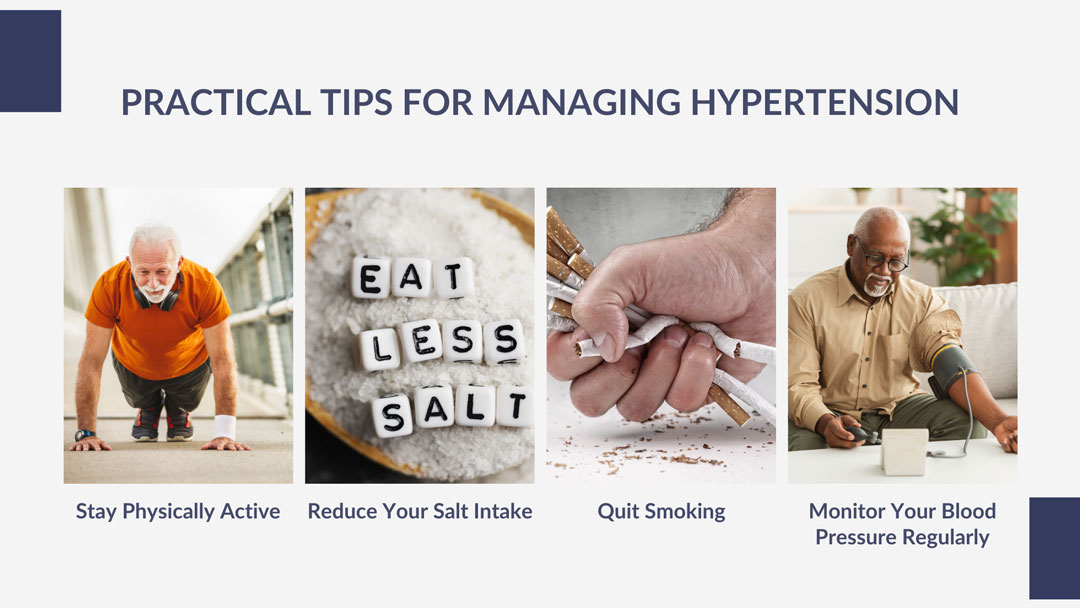Heart Health: Tips for Managing Hypertension

As we age, keeping our hearts healthy becomes more critical than ever. One of the main threats to heart health is high blood pressure or hypertension. This condition occurs when the force of your blood against your artery walls is too high, which can damage your arteries and lead to severe health problems like heart attacks, strokes, kidney issues, and vision loss.
Table of Contents
The Silent Threat: Hypertension
High blood pressure is often called the “silent killer” because many people don’t know they have it until severe damage has already been done. Regular blood pressure checks are crucial for early detection and management. Consistently high readings of 130/80 or above indicate hypertension. While medication can help, lifestyle changes are equally important for controlling your blood pressure.
Understanding the Dangers of Hypertension

Hypertension poses several significant health risks, especially for seniors:
- Heart Disease: High blood pressure can cause your arteries to harden and thicken, leading to heart disease or heart failure. This increased workload on your heart can enlarge it, making it difficult to pump blood effectively.
- Stroke: Hypertension can cause blood vessels in the brain to burst or become blocked, resulting in a stroke. This can lead to severe disability or even death.
- Kidney Damage: Your kidneys filter waste from your blood, but high blood pressure can damage the blood vessels in your kidneys, leading to chronic kidney disease or kidney failure.
- Vision Loss: High blood pressure can harm the blood vessels in your eyes, causing vision problems or blindness, a condition known as hypertensive retinopathy.
- Cognitive Decline: There is evidence that hypertension contributes to cognitive decline and dementia in seniors, significantly impacting daily life and well-being.
Recognizing these risks highlights the importance of managing hypertension through both lifestyle changes and medical intervention.
Causes of Hypertension

Hypertension, or high blood pressure, develops when the force of blood against your artery walls is consistently too high. Understanding the various factors that contribute to this condition can help manage and prevent it. Here’s a closer look at the primary causes:
Diet: The Role of Sodium
A diet high in sodium is a significant risk factor for hypertension. Sodium, commonly found in salt, can cause your body to retain excess fluid, increasing the blood volume your heart must pump. This added volume can raise blood pressure. Many processed and packaged foods, as well as restaurant meals, contain high levels of sodium. Reducing sodium intake by choosing fresh, whole foods and cooking at home can help lower blood pressure.
Physical Inactivity
Lack of exercise is another contributing factor to hypertension. Physical inactivity can lead to weight gain, which puts extra strain on the heart. Additionally, regular physical activity helps keep your heart and blood vessels healthy, promoting better blood flow and reducing the overall force against artery walls. Engaging in at least 30 minutes of moderate exercise most days of the week can significantly reduce your risk of developing high blood pressure.
Weight and Obesity
Being overweight or obese increases your risk of hypertension. Excess weight requires more blood to supply oxygen and nutrients to your tissues, increasing the amount of blood circulating through your blood vessels. This additional volume increases the pressure on your artery walls. Losing even a small amount of weight can help reduce blood pressure and improve overall heart health.
Smoking and Alcohol Consumption
Both smoking and excessive alcohol consumption can raise blood pressure. Nicotine from smoking causes blood vessels to constrict, forcing the heart to work harder to pump blood. This increases blood pressure and contributes to plaque buildup in the arteries, further exacerbating hypertension. Alcohol, when consumed in excess, can also raise blood pressure. Limiting alcohol intake and quitting smoking are crucial steps in managing and preventing hypertension.
Stress: The Impact of Chronic Stress
Chronic stress can contribute to hypertension by prompting unhealthy coping mechanisms such as overeating, poor diet choices, drinking alcohol, and smoking. Stress triggers the release of hormones that temporarily increase blood pressure, causing your heart to beat faster and your blood vessels to narrow. Managing stress through relaxation techniques, regular exercise, and healthy lifestyle choices can help lower blood pressure.
Genetics and Age
Genetics and age also play significant roles in the development of hypertension. If high blood pressure runs in your family, you are more likely to develop it. Genetic factors can affect how your body processes sodium and stress, among other things, increasing your risk. Additionally, blood pressure tends to rise with age. As you get older, your blood vessels naturally lose some of their elasticity, which can increase blood pressure. Regular monitoring and healthy lifestyle choices are essential, especially as you age.
By understanding these causes, you can take proactive steps to manage your blood pressure effectively.
Practical Tips for Managing Hypertension

Incorporating certain lifestyle changes can significantly improve your health and help control hypertension. Here are some practical tips:
Stay Physically Active
Aim for at least 30 minutes of moderate activity five days a week. Variety is key to staying motivated. Walking, jogging, biking, swimming, joining a dance class, or participating in a senior fitness program are excellent options. Combining cardio and strength training keeps your body fit and helps manage weight, which is crucial for reducing blood pressure. Even losing a few pounds can make a significant difference. Consult your doctor for personalized exercise recommendations.
Reduce Your Salt Intake
Excessive salt can significantly raise blood pressure. Aim to keep your sodium intake around 1,500 mg or less per day. Be vigilant about reading food labels and serving sizes. Processed and packaged foods generally have higher sodium levels than fresh ones. Opt for products labeled “no salt added,” “unsalted,” or “low sodium.” Adopt a diet rich in fresh fruits and vegetables, lean meats, and whole grains. Use herbs, spices, and other salt-free seasonings to flavor your meals instead of salt.
Quit Smoking
Quitting smoking is tough but immensely beneficial for your health. Nicotine constricts your blood vessels, reducing blood flow and making your heart work harder. Combined with high blood pressure, smoking significantly raises your risk of stroke or heart attack.
Monitor Your Blood Pressure Regularly
Check your blood pressure throughout the day to see if it remains high or stays within your target range. Record your activities when you check it, whether you’ve been exercising, sleeping, or feeling stressed. Tracking these trends helps determine if your lifestyle changes are effective. Share these notes with your doctor for better guidance.
Get Support from an In-Home Care Provider
An in-home care provider can be invaluable in managing your heart health. They can remind you to take your medication, help create and prepare a low-sodium diet, and encourage regular physical activity. Additionally, having a caregiver provides companionship and support as you navigate these lifestyle changes. Contact Always Best Care of Cypress at (281) 607-2696 to learn more and schedule your free consultation.





